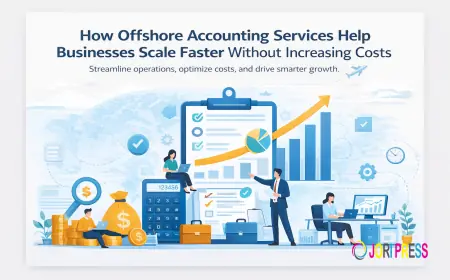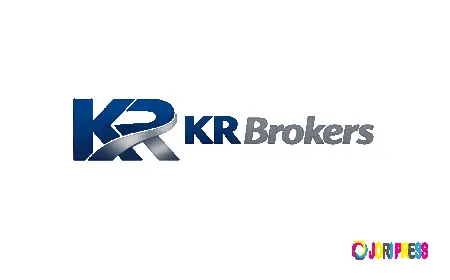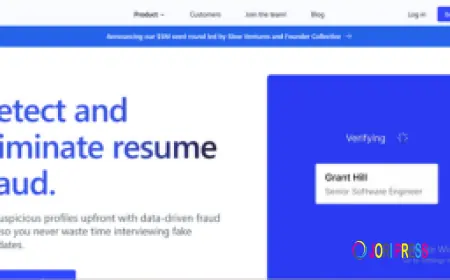Accounts Payable Automation Solutions: Transforming Business Efficiency Across Industries
Boost efficiency with accounts payable automation solutions for eCommerce, construction, hospitality, medical, and restaurant businesses.

Introduction
In today’s competitive business landscape, companies of all sizes—from small family-run cafés to global eCommerce enterprises—are under pressure to operate more efficiently, reduce costs, and maintain accuracy in financial processes. One area that has historically been time-consuming and prone to error is accounts payable (AP). Manually processing invoices, tracking approvals, and ensuring timely payments can drain resources, increase the risk of human error, and create bottlenecks in cash flow management.
Enter accounts payable automation solutions—innovative technologies designed to streamline invoice processing, improve accuracy, enhance vendor relationships, and provide real-time visibility into financial operations. Whether you’re seeking bookkeeping services for a small business or robust enterprise-grade systems, AP automation can deliver substantial benefits.
What is Accounts Payable Automation?
Accounts payable automation refers to the use of software systems and digital tools to manage the AP process without heavy manual intervention. It typically involves scanning or importing invoices, extracting data using OCR (optical character recognition), routing them for digital approvals, matching them with purchase orders, and scheduling payments—all in an integrated platform.
Instead of dealing with paper invoices, physical signatures, and manual data entry, businesses can manage the entire workflow in a secure, cloud-based environment.
Key Features of AP Automation Solutions:
-
Invoice capture (via email, PDF, or scan-to-cloud)
-
Data extraction & validation
-
Automated matching with purchase orders and receipts
-
Approval routing with notifications
-
Integration with ERP, accounting, or eCommerce accounting solutions
-
Digital payment processing
-
Audit trails & compliance monitoring
The Need for AP Automation Across Industries
1. eCommerce Businesses
The eCommerce industry operates at a lightning pace, with multiple vendors, suppliers, and global transactions happening daily. Manually managing supplier invoices can slow operations and lead to delays in stock replenishment.
Benefits for eCommerce:
-
Integration with eCommerce accounting solutions for real-time financial visibility
-
Faster reconciliation of supplier payments and refunds
-
Support for multi-currency transactions and tax compliance
-
Reduced overhead in managing high transaction volumes
Example: An Amazon FBA seller using AP automation can automatically match invoices from suppliers with purchase orders, ensuring goods are paid for promptly, reducing the risk of supply chain delays.
2. Construction Industry
For contractors and builders, managing accounts payable is more complex due to subcontractor payments, material supplier invoices, and project-based cost tracking.
Why It’s Important for Construction Accountants:
-
Centralised tracking of vendor invoices across multiple projects
-
Prevention of duplicate payments and overbilling
-
Integration with job-costing modules for project profitability analysis
-
Simplified compliance with industry-specific payment timelines
Example: A mid-sized construction firm using AP automation can ensure subcontractor invoices are approved in sequence with project milestones, streamlining cash flow without jeopardising supplier relationships.
3. Restaurants and Hospitality
Restaurants and hospitality businesses deal with a constant influx of invoices for ingredients, equipment, utilities, and maintenance services. Manual AP processes can lead to missed supplier payments, potentially affecting relationships with food and beverage distributors.
For Restaurant Accountants & Hospitality Accountants:
-
Speedy processing of invoices for perishable goods
-
Real-time tracking of expenses to control food and beverage costs
-
Improved compliance for VAT and local tax regulations
-
Bulk payment processing for multiple recurring suppliers
Example: A boutique hotel can use AP automation to pay utility bills, linen suppliers, and catering vendors without administrative delays, freeing up management to focus on guest experience.
4. Medical Practices
Medical providers—from small clinics to large hospitals—often work with numerous suppliers, including equipment vendors, pharmaceutical companies, and service contractors.
Why Medical Accountants Recommend AP Automation:
-
Accurate tracking of payments for regulated medical supplies
-
Compliance with healthcare-specific financial reporting requirements
-
Elimination of errors that could disrupt patient care services
-
Secure processing of sensitive financial information
Example: A dental practice could integrate AP automation with its existing financial systems, enabling the practice manager to approve supplier invoices digitally while maintaining patient care focus.
Key Benefits of Accounts Payable Automation Solutions
1. Improved Accuracy
Human error in manual data entry is one of the leading causes of payment discrepancies. Automation ensures that data is captured and validated automatically, reducing the risk of overpayments or missed payments.
2. Enhanced Efficiency
Automated AP workflows cut down the time spent processing each invoice. Businesses can handle higher volumes without increasing staff numbers, freeing employees for higher-value tasks.
3. Cost Savings
By reducing paper usage, postage, and administrative hours, companies can achieve significant operational savings. Many find that AP automation pays for itself within months.
4. Better Vendor Relationships
Timely, accurate payments foster stronger supplier relationships. Vendors may even offer better terms or discounts when payments are reliable.
5. Regulatory Compliance
Built-in audit trails and reporting tools simplify compliance with tax laws, financial reporting standards, and industry regulations.
Implementing AP Automation: Step-by-Step
-
Assess Current AP Processes
Map your existing workflows to identify bottlenecks and pain points. This helps in selecting a solution that addresses your specific needs. -
Choose the Right Solution
Whether you’re a retailer seeking bookkeeping services or a hospital hiring medical accountants, choose a platform that integrates with your current accounting or ERP systems. -
Integrate with Existing Systems
Ensure the automation tool works seamlessly with your accounting software, such as Xero, QuickBooks, or industry-specific platforms. -
Set Up Approval Workflows
Define digital approval hierarchies, ensuring invoices route to the right decision-makers automatically. -
Train Your Team
Even the most intuitive system requires proper onboarding to maximise adoption and efficiency. -
Monitor and Optimise
Use reporting features to track performance and identify further opportunities for efficiency.
Challenges to Consider
While the benefits are significant, AP automation also comes with challenges:
-
Upfront costs for software implementation
-
Resistance to change from employees used to manual processes
-
Integration complexities with legacy systems
These can be mitigated by working with experienced advisors, such as construction accountants or hospitality accountants, who understand both industry workflows and technology adoption.
The Future of AP Automation
The next wave of AP automation will likely incorporate AI and machine learning, further improving accuracy, fraud detection, and predictive analytics. Imagine a system that not only processes invoices but also predicts the best payment times for optimal cash flow or flags potentially fraudulent invoices before approval.
Conclusion
Accounts payable automation solutions are no longer just a convenience—they’re becoming a necessity for competitive businesses. From eCommerce accounting solutions to medical accountants, every sector can benefit from the speed, accuracy, and compliance advantages automation provides.
If your business is still tied to manual invoice processing, you’re missing out on time savings, cost reductions, and strategic advantages that could set you apart from competitors.
To explore how AP automation can integrate with your existing workflows—whether you run a restaurant, construction firm, eCommerce store, or medical practice—Contact E2E today. Their expertise spans industries, offering tailored bookkeeping services, compliance support, and financial strategy to ensure you get the most from your automation investment.
What's Your Reaction?
 Like
0
Like
0
 Dislike
0
Dislike
0
 Love
0
Love
0
 Funny
0
Funny
0
 Angry
0
Angry
0
 Sad
0
Sad
0
 Wow
0
Wow
0



















































